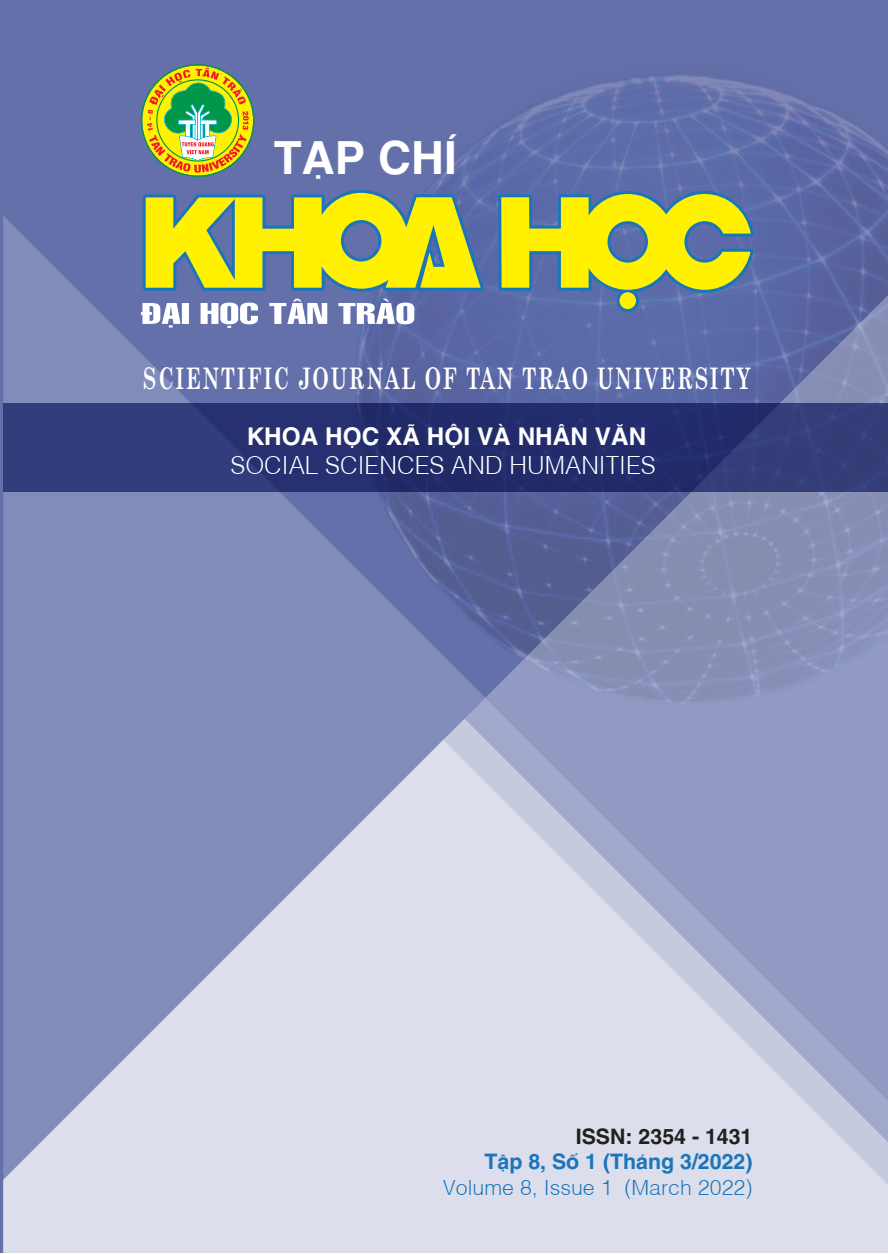INCLUSIVE EDUCATION IN PRESCHOOL IN HO CHI MINH CITY - THE CURRENT TREND AND PERSPECTIVE
DOI:
https://doi.org/10.51453/2354-1431/2022/726Keywords:
Inclusive education, Children with disability, Preschool, Trend, Acceptance attitudeAbstract
Inclusive education is a suitable trend and is the global trend now. This article aims to describe the picture of inclusive education for children in preschool in Ho Chi Minh City and to show the perspective in the future. Participants are 72 preschool teachers who attended the online survey and 104 preschoolers attended directly assessment. The result showed that, there are 95% of preschools have children with disability. Over 80% of teachers were trained in teaching children with disabilities. Children with typical development and their parents have different attitudes and behaviors to children with disabilities. Including children with disabilities in preschools will become popular in Vietnam in the near future. So, raising acknowledgement and acceptance of other children and their parents is very important.
Downloads
References
[1]. Decision No. 1100/QD-TTg dated June 21, 2016, approves the Plan of Implementation of the United Nations Convention on the Rights of Persons with Disabilities.
[2]. Minister of Education and Training, 2018. Circular 03/2018/TT-BGDDT on inclusive education for children with disabilities.
[3]. Minister of Education and Training, 2018. Decision No. 338/QD-BGDĐT dated January 30, 2018, of the Minister of Education and Training promulgating the sector's plan on education for people with disabilities in the 2018-2020 period Education, Hanoi.
[4]. The Incheon Strategy aims to “Realize the rights of people with disabilities in the Asia-Pacific region”, 2013. Ministry of Labor, War invalids and Social Affairs, Hanoi.
[5] UNESCO (2020), Global report on education surveillance: Inclusion and education. All means all. Downloaded on 6/3/2022. Global Education Monitoring Report 2020 - Inclusion and education - All means all [VI Summary].pdf
[6]. Hai N.X (2019). Sustainable development and sustainable development model of inclusive education for people with disabilities in Vietnam. Scientific Journal of Hanoi University of Education, Vol64(9AB), pp.55-65.
[7]. Huu N.D (2017). Policy on the education of people with disabilities in Vietnam. Scientific Journal, Hanoi University of Education, Vol62(9AB), pp.23-30.
[8]. Thuan N.V (2018), Rights-based approach policy system for children with disabilities in Israel. Scientific Journal of Hanoi University of Education, Vol63(9AB), pp.209-218.
[9]. Hanh N.T, Quang P.V và Hoa H. T. M (2019). Inclusive education for people with disabilities in Son La province – issues raised. Scientific Journal of Hanoi University of Education, Vol64(9AB), pp.280-286.
[10]. Huyen P. T. T (2019). Difficulties of preschool teachers in caring for and educating children with hyperactivity in concentration on some inclusive preschools in Nha Trang city - current trend and solutions. Scientific Journal of Hanoi University of Education, Vol64(9AB), pp.185-192.
[11]. My C. X, Oanh H. T. H và Ha N. T. N (2019). Some recommendations of the implementation of inclusive education of preschool and primary school teachers in Can Tho city. Scientific Journal of Hanoi National University of Education, Vol64(9AB), pp.310-316.
[12]. Paddy C. Favazza, Samuel C. Odom (1996). Use of Acceptance Scale to measure attitude to Kindergarten – Age Children. Journal of Early Intervention, Vol.20 N0.3 232-249.
[13]. UNICEF (2018). Children with disabilities in Vietnam: Results of the Vietnam Disability Survey 2016-2017. Download from https://www.unicef.org/vietnam/sites/unicef.org.vietnam/files/2019-01/Children%20with%20disabilities%20survey%20vn.pdf
[14]. Odom, S. L., Zercher, C., Li, S., Marquart, J. M., Sandall, S., & Brown, W. H. (2006). Social acceptance and rejection of preschool children with disabilities: A mixed-method analysis. Journal of Educational Psychology, 98, 807-823.
[15] Diamond, K. E., & Hong, S.Y. (2010). Young children’s decisions to include peers with disabilities in play. Journal of Early Intervention, 32, 163-177.
Downloads
Published
How to Cite
Issue
Section
License

This work is licensed under a Creative Commons Attribution-ShareAlike 4.0 International License.
All articles published in SJTTU are licensed under a Creative Commons Attribution-ShareAlike 4.0 International (CC BY-SA) license. This means anyone is free to copy, transform, or redistribute articles for any lawful purpose in any medium, provided they give appropriate attribution to the original author(s) and SJTTU, link to the license, indicate if changes were made, and redistribute any derivative work under the same license.
Copyright on articles is retained by the respective author(s), without restrictions. A non-exclusive license is granted to SJTTU to publish the article and identify itself as its original publisher, along with the commercial right to include the article in a hardcopy issue for sale to libraries and individuals.
Although the conditions of the CC BY-SA license don't apply to authors (as the copyright holder of your article, you have no restrictions on your rights), by submitting to SJTTU, authors recognize the rights of readers, and must grant any third party the right to use their article to the extent provided by the license.


